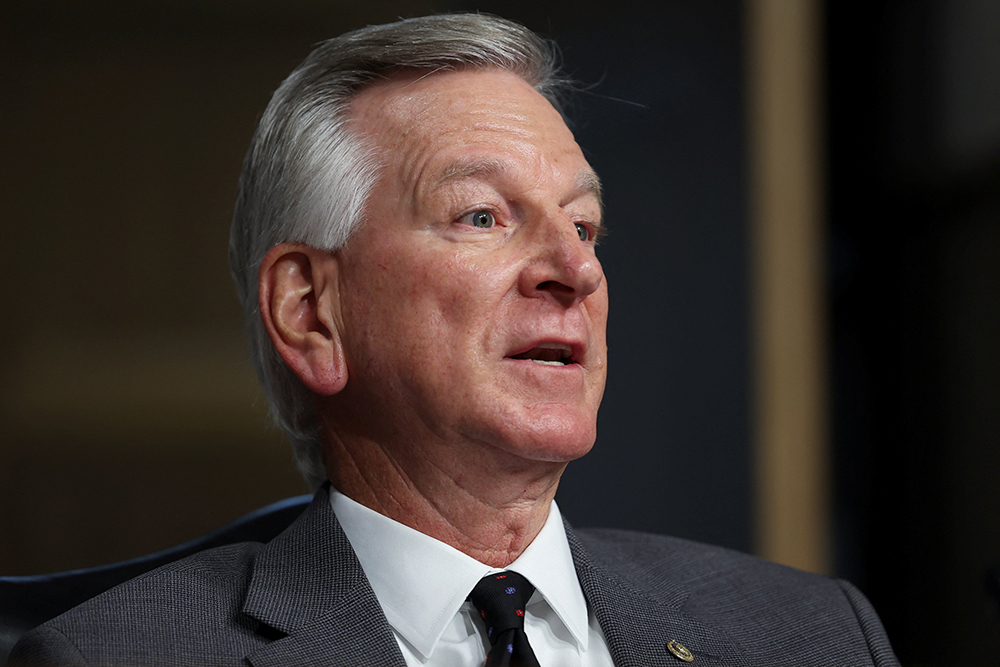
By Kate Scanlon
WASHINGTON (OSV News) — Sen. Tommy Tuberville, R-Ala., told reporters on Capitol Hill Dec. 5 that he would end his monthslong blockade on hundreds of military promotions undertaken in protest of a Pentagon abortion policy.
Tuberville said he agreed to an arrangement with Sens. Dan Sullivan, R-Alaska, and Joni Ernst, R-Iowa, that would release all of his holds on military officers at the three-star level and below, but his holds on some nominations for four-star generals and officers would remain in place for now.
“I’m releasing everybody,” Tuberville told reporters. “I still got a hold on, I think, 11 four-star generals. Everybody else is completely released from me. But other than that, it’s over.”
Since March 8, Tuberville had blocked nominations by denying the Senate the ability to confirm nominees through unanimous consent, a procedure in which the Senate considers a matter agreed to if no senator objects. Any one senator can block that process. Such military nominations are generally approved by unanimous consent rather than through individual votes.
Tuberville used the Senate procedure to block hundreds of military promotions in protest against the Pentagon’s abortion policy allowing service members to be reimbursed for travel costs associated with getting an abortion, along with his criticisms of what he called the military’s “woke politics.”
He has come under criticism from not only the White House and Defense Secretary Lloyd Austin for doing so, but also from members of his own party. Senate Minority Leader Mitch McConnell, R-Ky., has previously stated he does not support Tuberville’s blockade.
Critics argued that the blockade left military families in the lurch regarding family moves, with children unable to enroll in schools and spouses unable to seek new employment in their newly assigned locations.
Tensions between Tuberville and his fellow Senate Republicans spilled into the open Nov. 1 on the Senate floor, as some with military backgrounds challenged his blockade on the confirmations of senior military nominees over the Pentagon’s abortion policy. At that time, Ernst, both a veteran and a former military spouse who is pro-life, argued that Tuberville’s blockade disrespected service members and their families more than it challenged the abortion policy, which she said would be better challenged in court.
But Politico reported that Tuberville’s office asked pro-life groups to “make clear” to GOP senators that they risked primary challenges if they did not back his effort.
Senate Majority Leader Chuck Schumer, D-N.Y., told reporters Dec. 5 Tuberville’s blockade was “unnecessary and harmful.”
“I’m happy we can finally move forward and give these men and women the promotion they deserve,” he said. “I plan to move these promotions as soon as possible.”
The Catholic Church teaches that all human life is sacred and must be respected from conception to natural death. As such, the church opposes direct abortion as an act of violence that takes the life of the unborn child.
Following the U.S. Supreme Court’s 2022 Dobbs v. Jackson Women’s Health Organization decision, which returned the matter of regulating or restricting abortion back to the legislative branch, church officials in the U.S. have reiterated the church’s concern for both mother and child, as well as about social issues that push women toward having an abortion.
